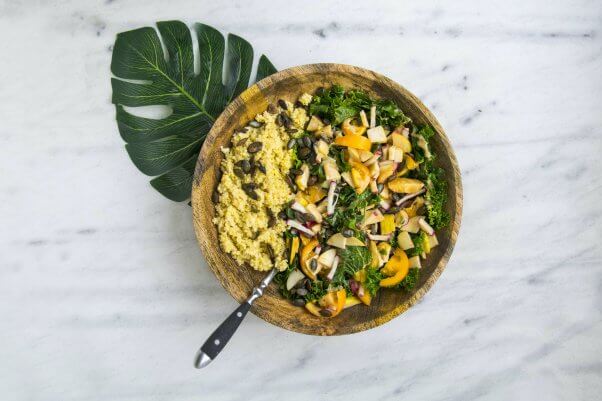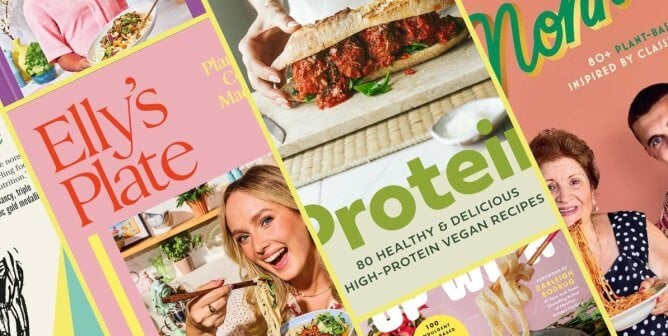There’s a lot of information about seed oils going around, but what’s the truth? According to the Cleveland Clinic, when it comes to oils, less is more. It’s best to cook at home as much as possible and choose foods with simple vegan ingredients. But what if a recipe calls for oil?

What Are Seed Oils?
Seed oils are derived from the seeds of plants such as canola, corn, and sunflowers. These oils undergo a chemical process that involves bleaching, refining, and heating to make them suitable for cooking and baking.
According to Healthline, vegetable oils have grown in popularity over the past hundred years. Companies often market these oils as beneficial for heart health and as superior options to animal-derived ingredients such as duck fat, lard, beef tallow, and butter.
Opting for plant-based oils over duck fat or other animal-derived ingredients is a compassionate choice. Ducks are smart, sentient beings who enjoy relaxing on the water and foraging for food. But many of them are deprived of the opportunity to live in peace because humans exploit and kill them for their meat, fat, and feathers.

The findings of a PETA investigation into Maple Leaf Farms—which claims to sell “humanely raised” duck meat—revealed that ducklings who were injured or sick and deemed unlikely to generate a profit were discarded into bins. They remained there, in distress, until workers carried them to another room and dumped them—while fully conscious—into a macerator, which chopped and ground them up. Their remains were tossed into the trash.
Pigs are playful, curious, and intelligent animals who often demonstrate problem-solving abilities. They form strong bonds with each other and humans. Cows, also known for their curious personalities, enjoy basking in the sun with their families and friends. But on today’s farms, these animals suffer immensely.

Farmers pack them into severely crowded, filthy sheds, where they’re often forced to stand in their own waste. On farms, animals suffer from untreated injuries and illnesses during their short lives, which are filled with constant stress and pain. By choosing plant-based oils, you can help prevent this suffering and improve your health.
The American Heart Association recommends that people consume foods that contain polyunsaturated fats—which are found in many seed oils—instead of those that contain saturated fats and/or trans fats, such as duck fat, lard, beef tallow, and butter. Polyunsaturated fats can help reduce the levels of “bad” cholesterol in your blood, which can lower your risk of heart disease and strokes.
Are Seed Oils Unhealthy?
It’s complicated. Seed oils are highly processed and often used in ultra-processed foods, such as fast food and packaged snacks. These oils are high in omega-6 fatty acids, which, when consumed in excess, can cause inflammation.
Omega-6s are necessary in small amounts to manage cholesterol levels and improve heart health, but traditional Western diets include far too many of them. Consuming too many omega-6s disrupts the balance between them and essential omega-3 fatty acids, which can lead to health issues, including arthritis, heart disease, and type 2 diabetes.
Should You Avoid Seed Oils?
There are no downsides to eliminating seed oils from your meals. But according to the Cleveland Clinic, it’s more practical to focus on reducing your consumption of processed foods, which naturally reduces your intake of seed oils while allowing for their occasional use in home cooking.
Eating foods cooked in unsaturated fats heated repeatedly at high temperatures, such as in restaurant deep fryers, poses health risks, according to Guy Crosby, an adjunct associate professor of nutrition at the Harvard T.H. Chan School of Public Health. On the other hand, Crosby believes that it’s safe to eat foods cooked at home in seed oil.
In addition, experts advise that there’s no need to avoid whole foods rich in omega-6s, such as nuts and seeds. Studies show that consuming these types of foods can help lower cholesterol, manage blood sugar levels, and reduce the risk of heart disease.
Using Seed Oils at Home
To improve your health, prioritize eating whole, unprocessed, low-fat foods and limit your use of seed oils. If you use seed oils at home, buy the healthiest options possible. Cold-pressed oils from sources such as olive seeds, walnuts, and flaxseeds retain more antioxidants and beneficial phytonutrients.

Seed Oil Swaps
- Avocado or extra-virgin olive oil: Try avocado oil for high-heat cooking or extra-virgin olive oil for low-heat cooking. Both are high in omega-3 fatty acids and offer nutritional benefits.
- Vegetable broth: This can be used instead of oil for cooking methods such as sautéing or stir-frying. Vegetable broth adds flavor without fat and imparts a sweet, caramelized taste similar to that of oil.
- Water: Use water when stir-frying to reduce the number of calories and fat in your food.
Once you’ve made your swaps, an oil sprayer offers an additional benefit. Lightly spraying seed oil in your pan or on vegetables before roasting them can help you use less of it.
Check out some of our favorite low-fat, low-calorie recipes. Take a balanced, enjoyable approach to eating well by embracing home cooking and making smart nutritional choices.







